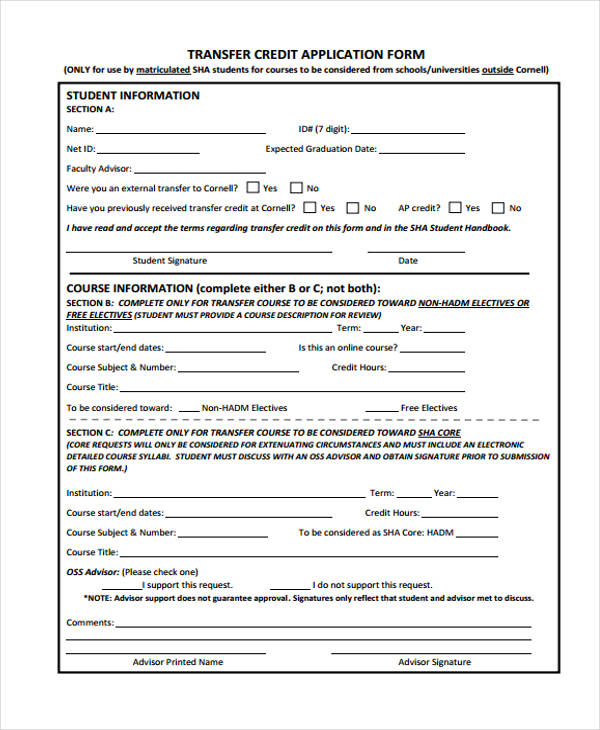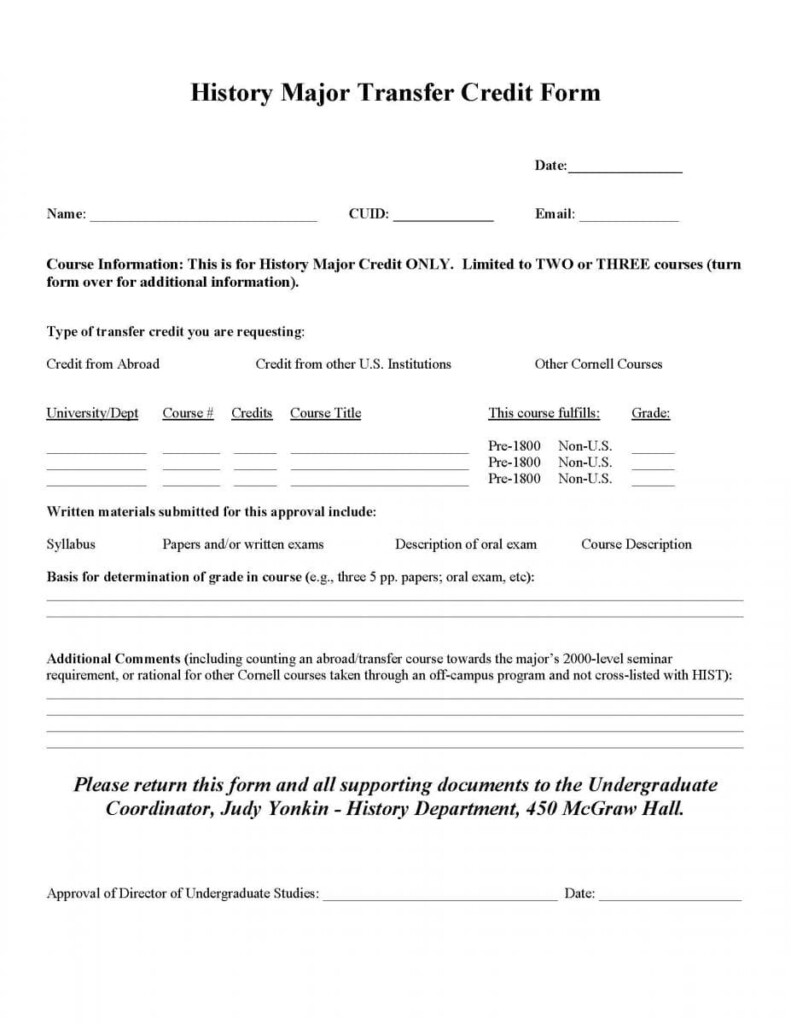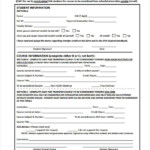Cornell Engineering Transfer Credit Form – If you’re confused about the process of transferring You can fill out the Transfer Credit Acquired Formula, or TCAF. There could be a course you did not complete or didn’t earn a grade for but you’re wondering if you could utilize it towards your degree. The good news is that you can. Courses that are graded the grade of C or better don’t need material review. However, it’s important to remember those courses that do not transfer to a specific U-M class is considered departmental credit. If it’s not departmental credit, you aren’t eligible to transfer it onto a U-M degree and you may not be able meet the requirements for your degree.
Coursework has to be graded equivalent to an A or higher.
In order for your courses to be transferred the students must have received an average of C or better. To be eligible for transfer credit, they need to have been completed at an accredited college or university, such as the Higher Learning Commission or the Middle States Association of Colleges and Schools (MASAC). International programs are evaluated upon an individual basis. Official transcripts should be submitted by the CCS. Your previous institution should also have accepted the courses.
If you wish to transfer credits to your previous college, courses taken at a foreign institution must have a minimum grade of C or higher. Scores of pass/satisfactory aren’t transferable, nor are colleges algebra, developmental courses or technical and career courses. However, this policy has been reviewed during the COVID-19 virus, and any courses previously completed will be accepted.
In order to transfer credit, classes in regionally accredited schools should have been graded with a in the range of “C” or better in the previous institution. To transfer credits these courses must be identical in scope and subject matter. While a C grade is the most basic requirement for transferable credit certain institutions can accept degrees of “D” or higher. Accreditation institutions comprise organizations like Middle States Association of Colleges and Schools and the New England Association of Schools and Colleges as well as the Northwest Association of Schools and Colleges in addition to the Southern Association of School and Colleges.
TCEL lists courses that have transferred to Clemson before. This isn’t a complete list . All courses not included on this list must be evaluated prior to applying to Clemson. There is a TCEL listing also lists different course equivalents, but the list does not indicate differences in the amount of credit hours that institutions offer. The TCEL list courses that are equivalent to the courses offered by other institutions, the Office of Admissions’ evaluations are based on current information.
While the previous coursework might be acceptable in some cases, it is crucial to consider its academic implications. If you’re unable to meet the requirements of the course think about retaking it. You must earn at the very least an “C” in the course and fulfill any rules required by the university. Taking a course two or three times can negatively impact your cumulative GPA so be mindful when you decide to take it again.





